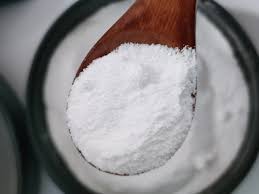A new study from Cleveland Clinic has raised alarms about the safety of erythritol, a commonly used artificial sweetener found in many “sugar-free” products. The research, published in Arteriosclerosis, Thrombosis, and Vascular Biology, suggests that erythritol significantly increases the risk of cardiovascular events, such as heart attacks and strokes, by making blood platelets more active and promoting the formation of harmful blood clots.
Erythritol, often used in sugar-free sodas, muffins, and other low-calorie foods, has long been considered a safer alternative to sugar for those looking to manage their calorie intake. However, Cleveland Clinic’s findings indicate that erythritol may have unintended health consequences. The study showed that, in contrast to glucose, erythritol triggers an increase in platelet activity, which is a critical factor in the development of blood clots. This process could ultimately lead to major cardiovascular events, including heart attacks and strokes.
The research involved 20 healthy volunteers, who were asked to consume erythritol at levels comparable to those found in everyday sugar-free products. After ingestion, erythritol levels in the blood spiked more than 1,000 times, resulting in a significant rise in blood clot formation.
This latest study builds upon previous research published by the same team in Nature Medicine last year, which showed that cardiac patients with elevated erythritol levels were twice as likely to experience a major cardiac event within three years. The continued findings raise serious concerns about erythritol’s role in cardiovascular health, especially for individuals who regularly consume products containing this sweetener.
Currently, erythritol is classified as safe by food regulatory agencies such as the U.S. Food and Drug Administration (FDA). However, given the growing body of evidence linking the sweetener to increased cardiovascular risks, the Cleveland Clinic researchers are calling for a reassessment of its safety profile. They urge food regulatory bodies to closely examine the long-term health effects of erythritol, particularly as its use continues to rise in sugar-free and diet products marketed to health-conscious consumers.
With the mounting evidence suggesting potential risks, experts are advocating for more research and transparency regarding the health implications of commonly used artificial sweeteners. Until more is known, health professionals are advising consumers to be cautious with erythritol and other sugar substitutes, especially those with pre-existing heart conditions or other risk factors for cardiovascular disease.
As the debate over erythritol’s safety unfolds, consumers are urged to remain informed and consider the potential risks when choosing products containing this sweetener.












